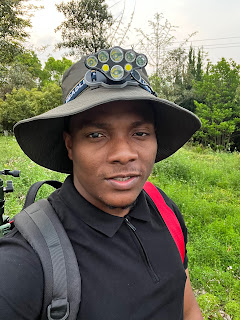Interrupting Bias - Calling Out v. Calling In
The point is, you can pick any "ism" and you will find someone getting "called out" for saying or doing something "ist" ie) racist, sexist, ageist, and so forth. In the photographic arts community, this often looks like an individual whose choice of language when putting out a call for a BIPOC model comes across as "tokenism" or "fetishism" when their true intent is better representation through diversifying their portfolio.
While we could engage in an interesting debate on who gets to be offended by what, most of us would agree that there are certain things (primarily those protected under the Canadian Constitution and UN Charter of Human Rights) that make it not only appropriate but crucial to let someone know that something they have said or done is offensive, disrespectful, or hurtful. But let's face it - the process of calling out can make things uncomfortable and awkward for both the person trying to communicate what is offensive as well as the person being informed.
In the vast majority of situations, something "offensive" is genuinely unintentional. Perhaps an outdated or inaccurate term is used, there is a misunderstanding about the context or meaning of a situation, or others and even we ourselves simply aren't aware that something we have expressed is potentially hurtful to another group or individual because it's new or unfamiliar territory.
While "calling out" certainly gets a point across, it can also lead to misunderstandings that result in anger, shame, hurt feelings, and even damaged personal and professional reputations, especially if the calling out happens in a public way. In addition to putting the person trying to correct the situation on the spot, calling out can have the unfortunate side effects of being embarrassing, making people respond from the defensive, or outright shutting them down. This is why there is a growing movement away from "calling out" to something known as "calling in" which is, in essence, the difference between interrupting bias by inviting someone into a conversation instead of a confrontation.
Seed the Way is a US-based organisation dedicated to the promotion of Equity, Diversity and Inclusivity. They've adapted an easy-to-follow quick reference sheet about Interrupting Bias: Calling Out v. Calling In from the Oregon Center for Educational Equity: What Did You Just Say? Responses to Racist Comments Collected from the Field.
Calling Out (stopping, ending, or leaving)
Wow. Nope. Ouch. I need to stop you right there. | That word/comment is really triggering and offensive. Be mindful and pick a different word. | I need to push back against that. I disagree. I don’t see it that way. |
Okay, I am having a strong reaction to that and I need to let you know why. | I don’t find that funny. Tell me why that’s funny to you. | I wonder if you’ve considered the impact of your words. |
Hmmm.. maybe you want to think this one through a bit more and speak about it later. | I need you to know how your comment just landed on me. | That’s not our culture here. Those aren’t our values. |
Is sex/gender/gender identity/gender expression/race/class/ ethnicity/religion/ability/ immigration status/ body type/ marital status/ age/ pregnancy relevant to your point? How? | It sounded like you just said _______. Is that really what you meant? | I feel obligated as your peer/colleague/co-worker/friend/supervisor to tell you that your comment wasn’t okay. |
It sounds like you’re making some assumptions that we need to unpack a bit. | You may or may not realize this, but you’re talking about me/my story/my identity markers. | I need to leave the room if the conversation is going to continue down this road. |
I’m curious. What was your intention when you said that? | How might the impact of your words/actions differ from your intent? | What sort of impact do you think your decision/comment/action might have? |
How might someone else see this differently? Is it possible that someone might misinterpret your words/actions? | How might your own comfort level, assumptions, expectations, prior experiences be influencing your beliefs, decisions, process? | How is ___ different from ____? What is the connection between ___ and ___? |
What criteria are you using to measure/assess etc? | How did you decide, determine, conclude... | What would have to change in order for ____? |
What do you assume to be true about ____? | Why is this the best way to proceed? What other approaches have you considered? | What is making you the most fearful, nervous, uncomfortable or worried? |
Why do you think that is the case? Why do you believe that to be true? | Why do you think others have/haven’t moved in that direction? | How do you know it’s working? |
Why did the result or response cause a problem for you? | What would other Stakeholders say/think/feel? | In your opinion, what is the best case scenario? |
As you can see, there are times and places where the best course of action is still going to be calling someone out, but calling someone in has a greater potential for bringing people together on common ground.
If you're ever caught in a situation where you aren't sure, you may wish to get familiar with these situations and begin the practice of Calling In.
(And if you're like the author of this article and aren't great at memorizing things, you can print them out or bookmark this PDF for easy reference.)
.png)



Comments
Post a Comment